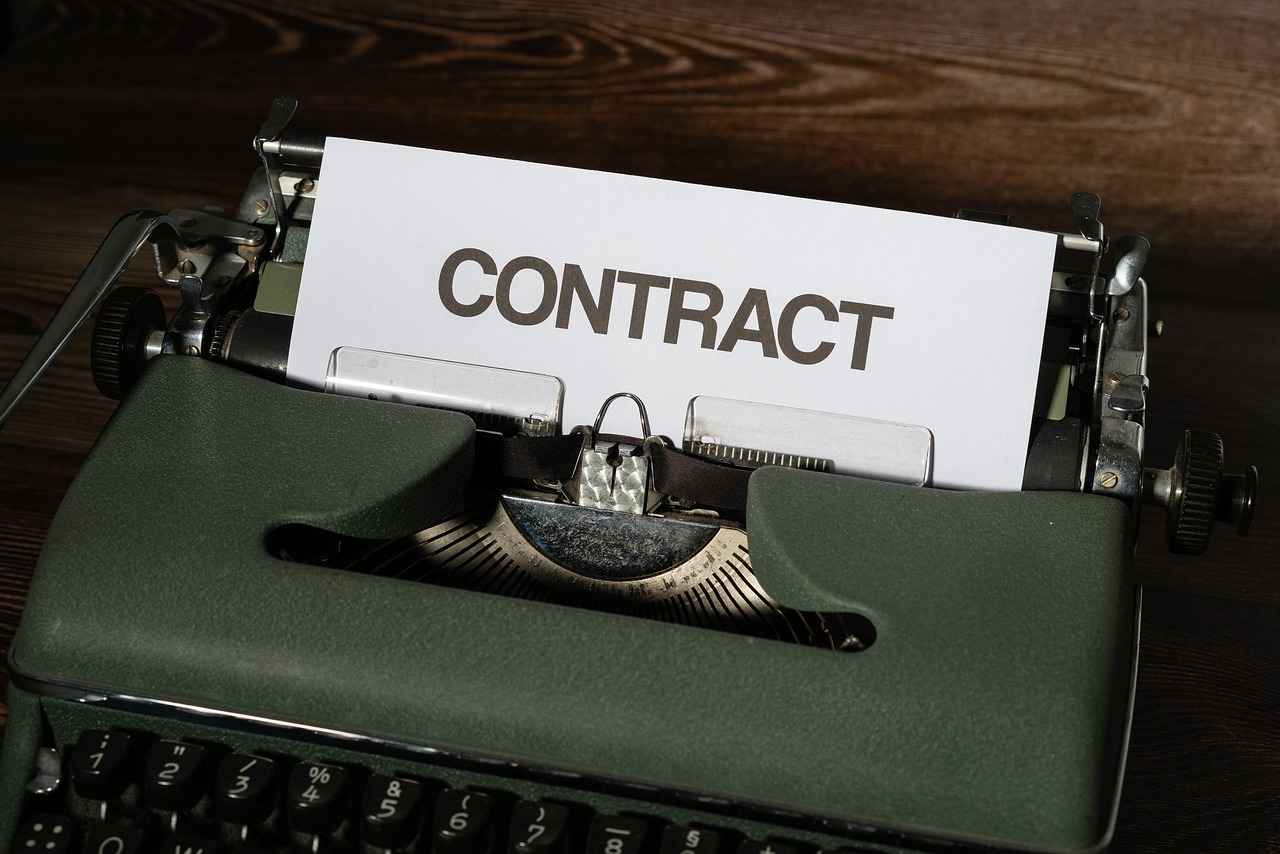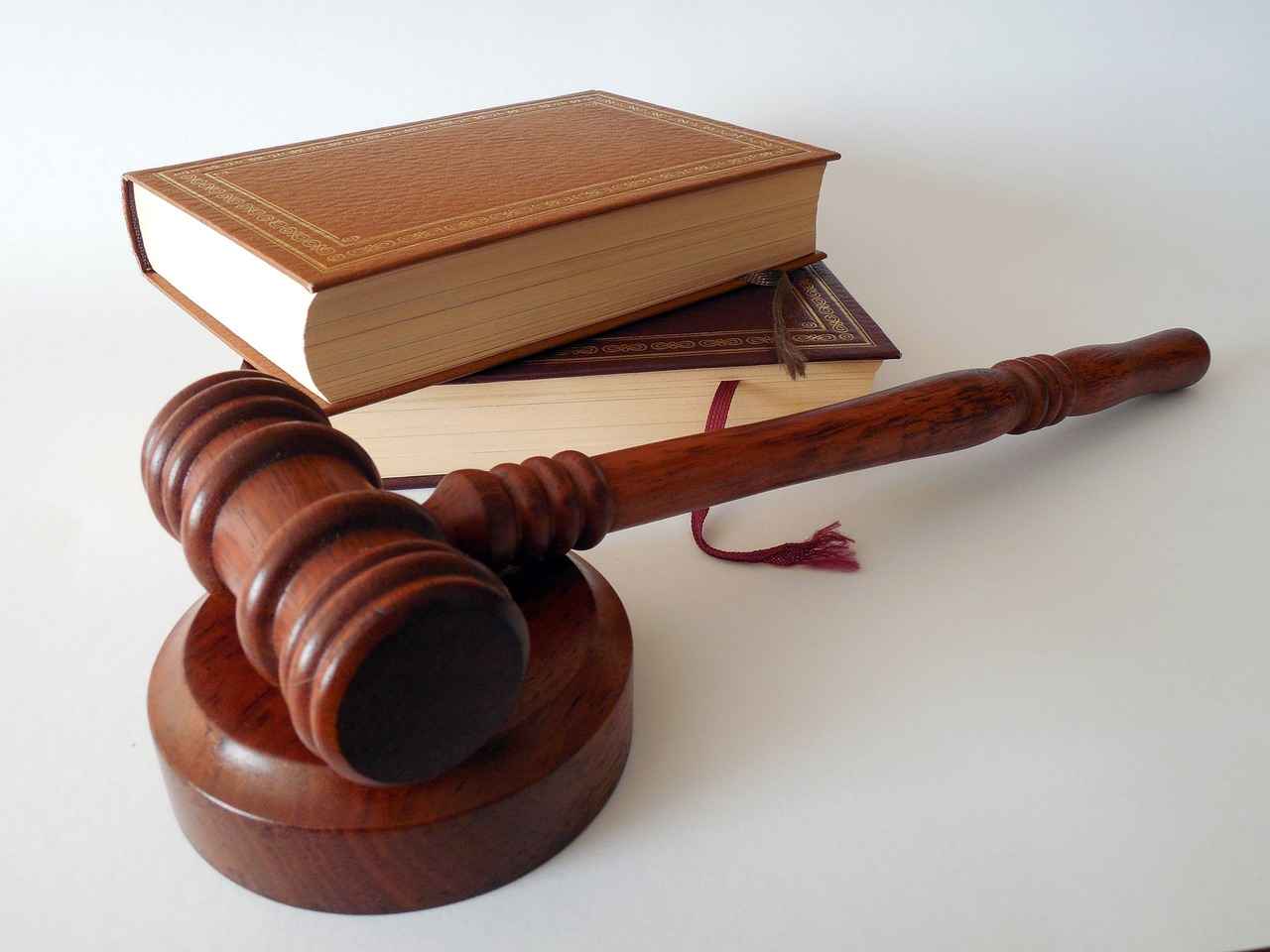This article explores effective methods for finding qualified lawyers in Irvine, California, covering various legal case types and offering practical guidance on choosing the right legal professional for your needs.
Finding the right lawyer can be a daunting task, especially with the myriad of legal specialties available. Whether you are facing a personal injury claim or navigating the complexities of family law, understanding how to identify qualified legal representation is crucial. Here, we provide comprehensive insights into the most common legal cases and how to find the best attorneys for each situation.
Personal injury cases arise when an individual suffers harm due to another’s negligence or intentional actions. To find a qualified personal injury attorney in Irvine, consider the following:
- Experience: Look for attorneys with a proven track record in personal injury law.
- Credentials: Check for membership in professional organizations like the American Bar Association.
- Client Reviews: Read testimonials and reviews to gauge client satisfaction.
Medical malpractice involves negligence by healthcare professionals. When searching for a medical malpractice attorney, consider their experience with similar cases and their success rates. Additionally, verify their credentials and whether they have specialized training in medical law.
Breach of contract cases occur when one party fails to fulfill their contractual obligations. Look for attorneys who specialize in contract law and have experience in your specific industry. Evaluate their negotiation skills and past case outcomes to ensure they can effectively represent your interests.
Property disputes can involve ownership rights and usage issues. To find a qualified real estate attorney, consider their experience in property law and their understanding of local regulations. It’s also beneficial to seek recommendations from trusted sources.
These disputes often require legal intervention. When looking for an attorney experienced in housing law, check their familiarity with local landlord-tenant laws and their approach to mediation and litigation.
Defamation, including libel and slander, can severely impact reputations. Seek attorneys who specialize in defamation cases and have successfully handled similar claims. Their experience and understanding of the nuances in defamation law will be critical in your case.
Employment disputes can involve wrongful termination or discrimination. When searching for an employment lawyer, prioritize those with experience in employment law and a track record of success in similar cases. Look for client reviews and their approach to resolving disputes.
Product liability cases arise when consumers are harmed by defective products. Find attorneys who specialize in this area and have experience dealing with manufacturers and large corporations. Their knowledge of product safety regulations will be vital in your case.
These claims seek justice for lives lost due to negligence. Look for compassionate attorneys who specialize in wrongful death cases and have a history of handling sensitive situations with care.
Class action lawsuits involve multiple plaintiffs against a common defendant. Seek attorneys with experience in class action cases and those who have successfully represented large groups of clients. Their understanding of the complexities involved will be invaluable.
Assault and battery charges require skilled legal defense. When looking for a criminal defense attorney, prioritize those with experience in similar cases and a strong understanding of criminal law.
Drug offenses range from possession to trafficking. Find attorneys who specialize in drug-related cases and have a solid track record in defending clients against such charges.
Divorce and family law cases often require sensitive legal guidance. Look for attorneys with experience in family law who can navigate the complexities of divorce, child custody, and support issues.
In conclusion, finding the right lawyer in Irvine, California, or any major metropolitan area requires careful consideration of their experience, credentials, and client feedback. Utilize online platforms, local bar associations, and personal referrals to identify qualified attorneys who can effectively represent your interests in various legal matters.

Understanding Personal Injury Cases
Personal injury cases represent a significant area of law, focusing on harm inflicted on individuals due to the negligence or intentional acts of others. This type of legal situation can arise from various circumstances, including car accidents, slips and falls, workplace injuries, and even medical malpractice. Understanding the intricacies of personal injury law is crucial for anyone seeking justice and compensation for their suffering.
When searching for an attorney specializing in personal injury law, it is essential to consider several key factors that can influence your case’s outcome. Here are some practical steps to help you find the right legal representation:
- Research Local Attorneys: Start by searching for personal injury lawyers in your area, especially in major cities like New York City, Los Angeles, and Chicago. Online legal directories, such as Avvo or Martindale-Hubbell, can provide lists of qualified attorneys along with client reviews.
- Check Credentials: Look for attorneys who have specific credentials in personal injury law. This includes board certifications, memberships in professional organizations such as the American Association for Justice, and a proven track record of successful settlements or verdicts in similar cases.
- Evaluate Experience: Experience matters significantly in personal injury cases. Seek attorneys who have handled cases similar to yours and possess a thorough understanding of local laws and regulations.
- Consult Initial Meetings: Most personal injury lawyers offer free consultations. Use this opportunity to discuss your case and assess the attorney’s approach, communication style, and willingness to advocate for your interests.
- Understand Fee Structures: Personal injury attorneys typically work on a contingency fee basis, meaning they only get paid if you win your case. Make sure to clarify the fee structure upfront and any additional costs that may arise during the legal process.
- Ask for References: Don’t hesitate to ask potential attorneys for references from past clients. Speaking with former clients can provide valuable insights into the attorney’s capabilities and reliability.
Additionally, it’s important to be aware of red flags when hiring a personal injury attorney:
- Lack of Communication: If an attorney is unresponsive during initial consultations, it may indicate future communication issues.
- Pressure Tactics: Be cautious of attorneys who pressure you into signing contracts or making quick decisions.
- Unclear Fee Structures: Avoid attorneys who cannot clearly explain their fee arrangement or who demand upfront payment.
In summary, finding the right personal injury attorney requires thorough research, careful consideration of credentials, and a clear understanding of the legal process. By following these guidelines, you can increase your chances of securing competent legal representation that will advocate for your rights and help you achieve a favorable outcome in your case.

Seeking Medical Malpractice Lawyers
When it comes to medical malpractice, the stakes are incredibly high. Victims of negligence by healthcare professionals can suffer devastating consequences, both physically and emotionally. Therefore, finding the right medical malpractice attorney is crucial for navigating this complex legal landscape. This section will guide you through the essential steps to identify experienced attorneys and understand the significance of their track record in similar cases.
Understanding Medical Malpractice
Medical malpractice occurs when a healthcare provider fails to meet the accepted standard of care, resulting in injury or harm to a patient. Common examples include surgical errors, misdiagnosis, and medication mistakes. Because these cases can be intricate, it is imperative to seek a lawyer who specializes in this field.
Identifying Experienced Medical Malpractice Attorneys
- Specialization: Look for attorneys who focus specifically on medical malpractice. Their expertise in this niche area will be invaluable.
- Track Record: An attorney’s history of successful settlements and verdicts in similar cases can provide insight into their capabilities. Ask for statistics or case studies that demonstrate their success rate.
- Client Reviews: Online reviews and testimonials can offer a glimpse into the experiences of past clients. Websites like Avvo and Yelp can be useful resources.
- Consultation: Schedule an initial consultation to discuss your case. This meeting can help you gauge the attorney’s understanding of your situation and their communication style.
Importance of a Strong Track Record
Hiring an attorney with a proven track record in medical malpractice cases is essential. A successful history indicates not just experience, but also a familiarity with the challenges that can arise during litigation. Attorneys who have navigated similar cases will be better equipped to anticipate potential obstacles and strategize effectively.
Questions to Ask During Consultations
1. How many medical malpractice cases have you handled?2. What is your success rate in these cases?3. Can you provide references from past clients?4. What is your approach to handling my specific case?5. How do you communicate with clients throughout the legal process?
Red Flags to Avoid
- Lack of Experience: Be cautious of attorneys who do not have a substantial background in medical malpractice.
- Vague Answers: If an attorney cannot provide clear, specific answers to your questions, it may indicate a lack of knowledge or preparedness.
- High Pressure Sales Tactics: Avoid attorneys who push you to make quick decisions without allowing you to think things through.
In summary, finding a qualified medical malpractice attorney involves careful consideration of their experience, track record, and client interactions. By following these guidelines, you can enhance your chances of securing the legal representation you need to pursue justice and compensation for your injuries.

Finding Breach of Contract Attorneys
When dealing with legal matters, especially in the realm of contracts, it is essential to have the right legal representation. Breach of contract cases occur when one party fails to meet their obligations as outlined in a contract. This can lead to significant financial and operational challenges, making it crucial to find an attorney who specializes in contract disputes.
To begin your search for a qualified breach of contract attorney, consider the following methods:
- Referrals: One of the most effective ways to find a reputable attorney is through referrals from friends, family, or business associates. They may have firsthand experience with attorneys who have successfully handled similar cases.
- Online Directories: Utilize online legal directories such as Avvo or FindLaw. These platforms allow you to search for attorneys by practice area and location, providing reviews and ratings to help you make an informed decision.
- Bar Association Resources: Contact your local or state bar association, which can provide a list of qualified attorneys who specialize in breach of contract law. Many bar associations also offer lawyer referral services.
- Consultation Meetings: Schedule consultations with potential attorneys to discuss your case. This will provide insight into their approach, experience, and compatibility with your needs.
When evaluating potential attorneys, pay attention to the following qualifications:
- Experience: Look for attorneys who have a proven track record in handling breach of contract cases. Inquire about their experience with similar disputes and the outcomes they have achieved.
- Specialization: Ensure that the attorney specializes in contract law. A specialized attorney will be more familiar with the nuances of contract disputes and the relevant laws in your jurisdiction.
- Communication Skills: Effective communication is vital in legal matters. Choose an attorney who can clearly explain complex legal concepts and keeps you informed throughout the process.
- Fee Structure: Understand the attorney’s fee structure before hiring them. Some may charge hourly rates, while others may work on a contingency basis. Make sure you are comfortable with the financial arrangements.
Additionally, be aware of red flags that may indicate an attorney is not the right fit for your case:
- Lack of Transparency: If an attorney is vague about their fees or the legal process, it may be a sign that they are not trustworthy.
- Poor Communication: If you have difficulty reaching the attorney or they do not respond promptly to your inquiries, consider this a warning sign.
- Limited Experience: Avoid attorneys who lack experience in breach of contract cases, as they may not be equipped to handle your specific situation effectively.
Finding the right breach of contract attorney is essential for protecting your interests and achieving a favorable outcome in your legal dispute. By utilizing the methods outlined above and carefully evaluating potential candidates, you can ensure that you have a qualified professional on your side.

Navigating Property Disputes
Property disputes can be intricate and often arise from disagreements over ownership, usage rights, or boundaries. Whether it’s a dispute between neighbors over a fence line, a disagreement among family members regarding inherited property, or issues with real estate transactions, having the right legal representation is crucial. Below are some expert insights on how to locate qualified real estate attorneys and the key factors to consider when hiring one.
Understanding the Types of Property Disputes
- Boundary Disputes: Conflicts over property lines can lead to legal battles that require precise measurements and legal documentation.
- Land Use Disputes: Issues may arise regarding zoning laws and how property can be utilized, often needing specialized legal knowledge.
- Lease Disputes: Conflicts between landlords and tenants about lease agreements can lead to litigation if not resolved amicably.
- Title Disputes: Challenges regarding property ownership and claims can complicate real estate transactions.
How to Find Qualified Real Estate Attorneys
Finding the right attorney is essential for navigating property disputes effectively. Here are some proven methods:
- Referrals: Seek recommendations from friends, family, or real estate professionals who have dealt with similar issues.
- Online Legal Directories: Websites like Avvo, FindLaw, or the American Bar Association can help you find attorneys with specific expertise in real estate law.
- Local Bar Associations: Contact your local bar association for a list of qualified real estate attorneys in your area.
- Consultation Meetings: Schedule consultations with potential attorneys to discuss your case and assess their experience and approach.
Key Factors to Consider When Hiring a Real Estate Attorney
When selecting a real estate attorney, consider the following factors:
- Experience: Look for attorneys with a strong background in real estate law and a history of handling property disputes similar to yours.
- Credentials: Verify their education, bar admissions, and any additional certifications in real estate law.
- Reputation: Research online reviews and ratings to gauge their reputation in the community and among peers.
- Communication Skills: Ensure that the attorney communicates clearly and is responsive to your questions and concerns.
- Fee Structure: Understand their billing methods, whether hourly or flat fees, and ensure it aligns with your budget.
Red Flags to Avoid
While searching for a real estate attorney, be cautious of the following red flags:
- Lack of Specialization: Avoid attorneys who do not specialize in real estate law, as they may lack the necessary expertise.
- Poor Communication: If an attorney is difficult to reach or unresponsive during initial consultations, it may indicate future communication issues.
- High Turnover Rate: Frequent changes in staff or attorneys at a firm can be a sign of instability.
- Negative Reviews: Be wary of attorneys with multiple negative reviews or complaints filed against them.
In conclusion, property disputes can be daunting, but with the right legal representation, you can navigate these complexities effectively. By understanding the types of disputes, utilizing reliable methods to find qualified attorneys, and being aware of key factors and red flags, you can make informed decisions that protect your property rights.

Landlord-Tenant Dispute Resolution
Landlord-tenant disputes can arise from various issues, including non-payment of rent, property maintenance, and lease violations. These conflicts often escalate to the point where legal intervention becomes necessary. Understanding how to navigate this complex area of law is crucial for both landlords and tenants to protect their rights and interests.
When seeking legal assistance for landlord-tenant disputes, it’s important to find an attorney who specializes in housing law. Here are some practical steps to help you identify the right legal professional:
- Research Local Attorneys: Start by searching for attorneys in your area who specialize in housing law. Websites like Avvo and FindLaw provide directories of lawyers along with ratings and reviews from previous clients.
- Check Credentials: Look for attorneys who have experience specifically in landlord-tenant disputes. Verify their educational background, years of practice, and any relevant certifications or specializations.
- Consult with Local Bar Associations: Reach out to your local or state bar association for referrals. They often have resources to help you find qualified attorneys based on your specific legal needs.
- Read Reviews and Testimonials: Online reviews can offer insights into an attorney’s reputation and effectiveness. Pay attention to feedback regarding their communication skills, success rates, and overall client satisfaction.
- Schedule Consultations: Many attorneys offer free initial consultations. Use this opportunity to discuss your case, ask questions, and evaluate if the attorney is a good fit for you.
During the legal process, you can expect several key steps:
- Initial Consultation: This is where you provide details about your dispute. The attorney will assess your situation and advise you on potential legal strategies.
- Negotiation: Many landlord-tenant disputes can be resolved through negotiation. Your attorney will communicate with the other party to seek a mutually agreeable solution.
- Filing a Lawsuit: If negotiations fail, your attorney may recommend filing a lawsuit. This involves preparing legal documents and officially submitting your case to the court.
- Discovery Phase: Both parties will exchange evidence and information relevant to the case. Your attorney will guide you through this process, ensuring you comply with all legal requirements.
- Trial: If the case proceeds to trial, your attorney will represent you in court, presenting evidence and arguments to support your position.
It’s important to understand that the legal process can be lengthy and may involve additional costs. Therefore, having a knowledgeable attorney who can navigate these complexities is invaluable. Look for someone who communicates clearly, understands your goals, and has a proven track record in handling landlord-tenant disputes.
In summary, finding the right attorney for landlord-tenant disputes requires thorough research and careful consideration. By following these steps and understanding what to expect during the legal process, you can better protect your rights and interests in any landlord-tenant conflict.

Understanding Defamation Cases
Defamation law is a critical area of legal practice, encompassing both libel (written defamation) and slander (spoken defamation). These cases are particularly sensitive, as they involve the protection of an individual’s or organization’s reputation against false statements that can cause significant harm. When navigating the complexities of defamation cases, it is essential to find an attorney who specializes in this field and possesses a strong track record of success.
Finding Specialized Defamation Attorneys
To begin your search for a qualified defamation attorney, consider the following methods:
- Referrals: Ask friends, family, or colleagues if they can recommend an attorney who specializes in defamation cases. Personal experiences often provide valuable insights.
- Online Directories: Utilize legal directories such as Avvo or FindLaw to search for attorneys in your area. These platforms often include ratings and reviews from previous clients.
- Bar Association Resources: Contact your local or state bar association for a referral service. They can connect you with attorneys who have expertise in defamation law.
Evaluating Experience and Success Rates
Once you have a list of potential attorneys, it is crucial to evaluate their experience and success rates. Here are some factors to consider:
- Years of Practice: Look for attorneys who have been practicing law for several years, particularly in defamation cases. Experience often translates to a deeper understanding of the legal nuances involved.
- Track Record: Inquire about the attorney’s past cases. A successful history of winning defamation cases or favorable settlements is a positive indicator of their capability.
- Client Testimonials: Read reviews or ask for references from previous clients. Their experiences can provide insight into the attorney’s communication style, professionalism, and effectiveness.
Understanding the Legal Process
Defamation cases can be intricate, often requiring a thorough understanding of various legal principles, including burden of proof and damages. A qualified attorney will guide you through the process, which typically involves:
- Consultation: The attorney will assess the specifics of your case, including the statements in question and the potential damages.
- Filing a Claim: If the case proceeds, your attorney will help you file a formal complaint in the appropriate court.
- Discovery Process: Both parties will exchange evidence, which may include documents, witness statements, and expert testimonies.
- Trial or Settlement: Many defamation cases are settled out of court, but if a trial is necessary, your attorney will represent you and present your case to a judge or jury.
Red Flags to Avoid
While searching for the right attorney, be mindful of potential red flags:
- Unclear Fees: Avoid attorneys who do not provide clear information about their fee structure. Transparency is key in any legal engagement.
- Lack of Specialization: Be cautious of attorneys who claim to handle a wide range of legal issues without a specific focus on defamation law.
- Negative Reviews: Pay attention to consistent negative feedback regarding an attorney’s communication or case handling. These issues can be indicative of future problems.
In conclusion, finding the right attorney for a defamation case requires careful research and consideration. By utilizing referrals, online resources, and evaluating experience and success rates, you can identify a qualified legal professional who can effectively advocate for your rights and help restore your reputation.

Employment Disputes and Legal Representation
Employment disputes can arise from various issues, including wrongful termination, discrimination, and harassment. These disputes can significantly impact an individual’s career and well-being, making it essential to seek legal representation when necessary. In this section, we will explore how to find qualified employment lawyers and the critical credentials to evaluate when selecting the right attorney for your case.
Employment disputes often stem from conflicts between employees and employers, leading to legal challenges that can be complex and emotionally taxing. Common issues include:
- Wrongful Termination: This occurs when an employee is fired for illegal reasons, such as discrimination or retaliation.
- Discrimination: Employees may face discrimination based on race, gender, age, or disability, which can lead to legal action.
- Harassment: Workplace harassment, including sexual harassment, can create a hostile work environment, warranting legal intervention.
Finding the right employment lawyer can be a daunting task, especially in metropolitan areas where options are plentiful. Here are some effective methods to locate qualified attorneys:
- Referrals: Start by asking friends, family, or colleagues for recommendations. Personal referrals can provide insights into an attorney’s capabilities and demeanor.
- Online Directories: Utilize legal directories such as Avvo, FindLaw, or the American Bar Association’s website to search for employment lawyers in your area.
- Local Bar Associations: Contact your state or local bar association for a referral service that can connect you with experienced employment attorneys.
- Consultation Services: Many attorneys offer free initial consultations. Take advantage of these meetings to gauge their expertise and approach to your case.
Once you have a list of potential lawyers, it’s crucial to evaluate their credentials carefully. Here are key factors to consider:
- Experience: Look for attorneys who specialize in employment law and have a proven track record in handling cases similar to yours.
- Success Rate: Inquire about their success rate in employment disputes, as this can indicate their effectiveness in court or during negotiations.
- Client Reviews: Check online reviews and testimonials to understand previous clients’ experiences and satisfaction levels.
- Professional Associations: Membership in professional organizations, such as the National Employment Lawyers Association (NELA), can signify a commitment to staying updated on employment law.
While searching for legal representation, be aware of potential red flags that may indicate an attorney is not the right fit:
- Lack of Specialization: Avoid lawyers who do not specialize in employment law, as they may not be familiar with the nuances of your case.
- Poor Communication: If an attorney is unresponsive or fails to communicate effectively during initial consultations, it may indicate future issues.
- High Pressure Tactics: Be cautious of lawyers who pressure you to sign contracts quickly or make hasty decisions without fully explaining your options.
- Unclear Fee Structures: Ensure that the attorney provides a clear and transparent fee structure. Vague pricing can lead to unexpected costs down the road.
In conclusion, navigating employment disputes can be challenging, but finding the right legal representation can make a significant difference in the outcome of your case. By following the methods outlined above and carefully evaluating potential attorneys, you can secure a knowledgeable advocate who will fight for your rights in the workplace.

Product Liability Cases Explained
Product liability cases are a crucial aspect of personal injury law, focusing on injuries or damages caused by defective products. This area of law holds manufacturers, distributors, and retailers accountable for the safety of their products. When consumers are harmed due to defects in design, manufacturing, or marketing (such as inadequate warnings), they may have a valid claim for compensation. Understanding how to navigate these cases is essential for anyone seeking justice for injuries sustained from faulty products.
Finding the right attorney who specializes in product liability can significantly impact the outcome of your case. Here are some effective strategies to locate qualified legal representation:
- Research Online: Utilize legal directories such as Avvo, FindLaw, or Nolo to find attorneys specializing in product liability. These platforms often provide ratings, reviews, and detailed profiles of lawyers, helping you make an informed choice.
- Check Credentials: Look for attorneys who are members of professional organizations such as the American Association for Justice (AAJ) or state-level trial lawyer associations. Membership in these groups indicates a commitment to staying current with legal developments in product liability.
- Evaluate Experience: Prioritize attorneys with a proven track record in handling product liability cases. Inquire about their past cases, settlements, and verdicts. An attorney who has successfully litigated similar cases will be better equipped to navigate the complexities of your claim.
- Consult Referrals: Ask friends, family, or colleagues for recommendations. Personal referrals can provide valuable insights into an attorney’s communication style, reliability, and effectiveness.
- Initial Consultations: Many attorneys offer free initial consultations. Use this opportunity to discuss your case, assess their understanding of product liability law, and gauge your comfort level with them.
When evaluating potential attorneys, consider the following qualifications that indicate expertise in product liability:
- Specialization: Look for attorneys who specifically focus on product liability law rather than general practitioners. Specialized knowledge can make a significant difference in the handling of your case.
- Trial Experience: An attorney with trial experience is crucial, as many product liability cases may go to court. Ensure they have a history of successfully representing clients in front of a jury.
- Negotiation Skills: Product liability cases often involve negotiations with insurance companies. An attorney with strong negotiation skills can secure better settlements for their clients.
- Client Testimonials: Read reviews and testimonials from previous clients to gauge their satisfaction and the attorney’s effectiveness. Positive feedback can indicate a reliable and competent lawyer.
Be aware of potential red flags when hiring a product liability attorney:
- Lack of Transparency: If an attorney is vague about their fees, experience, or past case outcomes, consider it a warning sign. A reputable attorney should provide clear and detailed information.
- High Pressure Tactics: Avoid attorneys who pressure you to sign contracts or make quick decisions. A trustworthy attorney will give you time to consider your options.
- Limited Communication: If an attorney is slow to respond to your inquiries or fails to keep you updated on your case, it may indicate poor client service.
In summary, navigating product liability cases requires careful consideration when selecting legal representation. By conducting thorough research, evaluating credentials, and being aware of red flags, you can find an attorney who is well-equipped to advocate for your rights and secure the compensation you deserve.

Wrongful Death Claims and Legal Help
Wrongful death claims are a poignant reminder of the tragic consequences of negligence. These claims arise when an individual loses their life due to the reckless or negligent actions of another party. Navigating the legal landscape after such a loss can be overwhelming, and finding the right attorney is crucial for seeking justice and compensation. In this section, we will explore how to find compassionate and experienced wrongful death attorneys in Irvine, California.
When searching for a wrongful death attorney, it is essential to look for professionals who not only possess the requisite legal skills but also demonstrate a deep understanding of the emotional toll such cases can take on families. Here are some effective strategies to help you in your search:
- Research Local Attorneys: Start by compiling a list of attorneys in Irvine who specialize in wrongful death claims. You can use online legal directories, bar association websites, and local law firm listings to identify potential candidates.
- Read Reviews and Testimonials: Client reviews can provide insight into an attorney’s reputation and success rate. Look for testimonials that highlight their compassion, communication skills, and ability to navigate complex legal processes.
- Check Credentials and Experience: Ensure that the attorney has relevant experience in handling wrongful death cases. Look for their educational background, years of practice, and any specialized training in personal injury law.
- Schedule Consultations: Many attorneys offer free initial consultations. Use this opportunity to discuss your case and evaluate how comfortable you feel with the attorney. Pay attention to their willingness to listen and understand your situation.
- Assess Their Communication Style: Effective communication is vital in legal proceedings. Choose an attorney who explains legal jargon in simple terms and keeps you updated throughout the process.
- Evaluate Fee Structures: Understand the attorney’s fee structure before making a decision. Many wrongful death attorneys work on a contingency fee basis, meaning they only get paid if you win your case. Clarify any potential costs upfront to avoid surprises later.
Additionally, consider the attorney’s track record in securing settlements or verdicts in wrongful death cases. A strong history of successful outcomes can be a good indicator of their capability to handle your case effectively.
In Irvine, you can also reach out to local support groups or organizations that assist families dealing with wrongful death. They may offer referrals to trusted attorneys who have experience in this sensitive area of law.
Lastly, trust your instincts. The attorney you choose should not only be qualified but should also make you feel supported during this challenging time. Finding the right wrongful death attorney can significantly impact your ability to achieve justice and closure for your loved one.

Class Action Lawsuits: Finding the Right Attorney
Class action lawsuits represent a significant area of legal practice, where multiple plaintiffs come together to file a lawsuit against a common defendant. These cases often involve consumer rights, employment issues, or environmental concerns, making them complex and multifaceted. As someone seeking legal representation in a class action lawsuit, it is crucial to find an attorney who specializes in this area and possesses the right credentials.
Understanding Class Action Lawsuits
Class action lawsuits allow groups of individuals to collectively seek justice, often against large corporations or institutions. This legal mechanism is designed to streamline the process and reduce the burden on the judicial system. However, the complexity of these cases requires specialized knowledge and experience. Therefore, identifying the right attorney is paramount.
Key Credentials to Look For
- Experience in Class Actions: Look for attorneys who have a proven track record in handling class action lawsuits. This includes familiarity with the specific laws and regulations governing these cases.
- Successful Outcomes: Evaluate the attorney’s history of successful settlements or verdicts in similar cases. This can often be found in client testimonials or case results published on their website.
- Reputation: Research the attorney’s reputation within the legal community. Peer reviews and ratings from organizations such as Martindale-Hubbell can provide insights into their standing.
- Membership in Professional Associations: Membership in organizations like the American Association for Justice (AAJ) or state bar associations can indicate a commitment to continuing education and ethical practices.
Methods to Identify Qualified Attorneys
Finding the right attorney for your class action lawsuit can be daunting. Here are some effective methods to streamline your search:
- Online Legal Directories: Websites like Avvo, FindLaw, and Justia allow you to filter attorneys by specialty and location. These platforms often include client reviews and ratings.
- Referrals: Ask friends, family, or colleagues if they can recommend a qualified attorney. Personal referrals can lead to trustworthy options.
- Consultation Meetings: Schedule consultations with potential attorneys. This allows you to gauge their expertise, communication style, and approach to your case.
- Social Media and Legal Blogs: Many attorneys maintain a presence on social media or write blogs. Engaging with their content can provide insights into their expertise and approach to class actions.
Red Flags to Avoid
While searching for the right attorney, be mindful of potential red flags that may indicate a lack of suitability:
- Lack of Experience: Be cautious of attorneys who do not have specific experience in class action lawsuits, especially if they claim to handle a wide range of legal issues.
- Unclear Fee Structures: Ensure that the attorney clearly explains their fee structure. Be wary of those who do not provide transparency regarding costs.
- Poor Communication: If an attorney is difficult to reach or does not respond promptly to inquiries, this may reflect their commitment to your case.
In conclusion, finding the right attorney for a class action lawsuit involves careful consideration of their experience, reputation, and communication style. By utilizing various resources and being mindful of red flags, you can identify a qualified legal professional who will advocate for your rights effectively.

Criminal Defense: Assault and Battery Cases
When facing assault and battery charges, it is crucial to secure a skilled legal defense. These charges can lead to severe consequences, including hefty fines and imprisonment. Therefore, finding an experienced criminal defense attorney who specializes in such cases is essential. This section provides guidance on how to locate qualified legal representation and what qualifications to prioritize.
1. Understanding the Nature of Assault and Battery
Assault and battery are often used interchangeably, but they represent different legal concepts. Assault typically refers to the threat of violence, while battery involves actual physical harm. Understanding these distinctions can help you communicate effectively with potential attorneys about your case.
2. Researching Qualified Attorneys
- Online Directories: Utilize legal directories such as Avvo or FindLaw. These platforms allow you to search for attorneys based on their specialties and geographical locations.
- State Bar Associations: Check your state’s bar association website for a list of licensed attorneys. They often provide information about an attorney’s credentials and any disciplinary actions.
- Referrals: Seek recommendations from friends, family, or professional contacts who have had similar legal issues. Personal referrals can lead to trustworthy options.
3. Evaluating Qualifications
Once you have a list of potential attorneys, it is important to evaluate their qualifications:
- Experience: Look for attorneys with significant experience in handling assault and battery cases. Ask how many similar cases they have managed and their success rates.
- Specialization: Ensure the attorney specializes in criminal defense, particularly in assault and battery laws. Specialized knowledge can significantly impact the outcome of your case.
- Client Reviews: Read online reviews and testimonials to gauge the attorney’s reputation. Positive feedback from past clients can indicate reliability and effectiveness.
4. Initial Consultations
Most attorneys offer a free initial consultation. Use this opportunity to discuss your case, ask questions, and assess their communication style. Important questions to consider include:
- What is your approach to defending assault and battery charges?
- What potential outcomes can I expect based on my case details?
- What are your fees, and how do you structure payment plans?
5. Red Flags to Watch For
While searching for a criminal defense attorney, be cautious of potential red flags:
- Lack of Communication: If an attorney is unresponsive or fails to answer your questions during the initial consultation, it may indicate future issues.
- Unrealistic Promises: Be wary of attorneys who guarantee specific outcomes. Legal cases can be unpredictable, and no attorney can assure a win.
- High Turnover Rates: Frequent changes in staff or attorneys within a firm can signal disorganization or instability.
In summary, finding a qualified attorney for assault and battery charges involves thorough research, evaluation of qualifications, and careful consideration of red flags. By taking these steps, you can secure competent legal representation to navigate the complexities of your case effectively.

Understanding Drug Offenses and Legal Representation
Drug offenses in the United States encompass a wide range of illegal activities, from simple possession of controlled substances to large-scale trafficking operations. These cases can have serious legal consequences, including hefty fines and lengthy prison sentences. Therefore, it is crucial to seek the assistance of a qualified attorney who specializes in drug-related cases. Here, we will explore how to find the right legal representation for drug offenses and the importance of their expertise.
Types of Drug Offenses
- Possession: Holding a controlled substance for personal use.
- Distribution: Selling or delivering illegal drugs.
- Trafficking: Large-scale transportation or sale of drugs, often involving organized crime.
- Manufacturing: Producing controlled substances illegally.
- Possession with Intent to Distribute: Possessing drugs with the intention of selling them.
Why Experience Matters
When facing drug charges, the experience of your attorney can significantly impact the outcome of your case. An attorney with a background in drug law will be familiar with the intricacies of local laws, potential defenses, and the workings of the criminal justice system. They can provide invaluable guidance on how to navigate the legal process, negotiate plea deals, or mount a strong defense in court.
How to Find a Qualified Drug Offense Attorney
Finding the right attorney requires careful consideration. Here are some effective methods:
- Referrals: Ask friends, family, or colleagues for recommendations. Personal experiences can often lead to trustworthy referrals.
- Online Directories: Use legal directories such as Avvo, FindLaw, or the National Association of Criminal Defense Lawyers (NACDL) to search for attorneys specializing in drug offenses.
- Consultation: Schedule consultations with potential attorneys to discuss your case. Many lawyers offer free initial consultations, allowing you to gauge their expertise and approach.
- Check Credentials: Look for attorneys who are members of relevant legal associations and have certifications in criminal defense or drug law.
- Read Reviews: Online reviews and testimonials can provide insights into an attorney’s reputation and success rate in drug cases.
Red Flags to Avoid
While searching for an attorney, be aware of potential red flags:
- Lack of Specialization: Avoid attorneys who do not specialize in criminal defense or drug offenses.
- High Pressure Tactics: Be cautious of attorneys who pressure you into signing contracts or making quick decisions.
- Poor Communication: If an attorney is difficult to reach or does not respond promptly to inquiries, it may indicate a lack of commitment to your case.
Conclusion
In navigating the complex landscape of drug offenses, having a skilled attorney by your side is essential. By understanding the types of drug offenses, recognizing the importance of experience, and employing effective strategies to find a qualified attorney, you can significantly enhance your chances of a favorable outcome. Remember, the right legal representation can make all the difference in your case.

Divorce and Family Law Attorneys
When navigating the complexities of divorce and family law, it is crucial to seek qualified legal guidance. These cases often involve sensitive issues such as child custody, asset division, and spousal support. Finding the right family law attorney can significantly impact the outcome of your case. Here are some effective strategies to help you identify and select a competent family law attorney.
1. Understand the Specific Needs of Your Case
Before beginning your search, take time to assess your specific legal needs. Are you dealing with a contested divorce, child custody dispute, or perhaps adoption? Each area of family law has its nuances, and finding an attorney who specializes in your particular issue is essential. Look for lawyers who have a proven track record in similar cases.
2. Research Credentials and Experience
When evaluating potential attorneys, consider their credentials. Look for qualifications such as:
- Juris Doctor (JD) degree from an accredited law school
- Membership in the American Academy of Matrimonial Lawyers (AAML)
- State bar certification in family law
- Experience in litigation and negotiation
In addition to formal education, assess their years of experience and success rates in handling cases similar to yours. A seasoned attorney will have the expertise to navigate complex legal issues effectively.
3. Utilize Online Resources and Reviews
In today’s digital age, numerous platforms can help you find qualified family law attorneys. Websites like Avvo, FindLaw, and Justia provide attorney listings, client reviews, and ratings. Pay attention to the feedback from former clients, as it can offer valuable insights into an attorney’s communication style, professionalism, and effectiveness.
4. Schedule Consultations
Once you have a shortlist of potential attorneys, schedule consultations. Many lawyers offer free initial consultations, allowing you to discuss your case and assess their approach. During the meeting, ask about their experience with cases like yours, their strategy for handling your situation, and their fees. This is also an opportunity to gauge their communication style and whether you feel comfortable working with them.
5. Evaluate Communication and Compatibility
Effective communication is vital in family law cases. Your attorney should be someone who listens to your concerns, explains legal concepts clearly, and keeps you updated on your case’s progress. Compatibility is also crucial, as you will be sharing personal information and working closely together. Trust your instincts; if you feel uneasy during the consultation, it may be best to continue your search.
6. Consider Legal Fees and Payment Structures
Understanding the fee structure is an important aspect of hiring a family law attorney. Some lawyers charge hourly rates, while others may offer flat fees for specific services. Be sure to discuss payment options and any potential additional costs upfront to avoid surprises later. A transparent attorney will provide a clear breakdown of their fees and any expected expenses.
7. Watch for Red Flags
While searching for a family law attorney, be mindful of potential red flags. These may include:
- Lack of responsiveness to your inquiries
- Pressure to make quick decisions without adequate information
- Unclear fee structures or sudden changes in costs
- Poor reviews or reputation in the legal community
Being vigilant about these warning signs can save you from hiring an attorney who may not have your best interests at heart.
In conclusion, finding the right divorce and family law attorney requires careful consideration and research. By understanding your specific needs, evaluating credentials, utilizing online resources, and being aware of red flags, you can make an informed decision that will help you navigate your legal challenges with confidence.
Frequently Asked Questions
- How do I find a qualified personal injury lawyer in Irvine?
Start by researching local attorneys who specialize in personal injury law. Look for reviews and testimonials, and ensure they have experience with cases similar to yours. Don’t hesitate to schedule consultations to gauge their expertise and comfort level.
- What should I consider when hiring a medical malpractice attorney?
Focus on their track record in handling medical malpractice cases. It’s essential to choose someone with a strong history of successful outcomes and relevant experience in the medical field. Ask about their approach to handling cases and how they communicate with clients.
- What qualifications are important for breach of contract attorneys?
Look for attorneys who have specific experience in contract law and a proven history of resolving disputes. Their understanding of negotiation tactics and litigation can significantly impact the outcome of your case.
- How can I find a good real estate attorney for property disputes?
Seek recommendations from friends or real estate professionals. Make sure the attorney has extensive experience in property law and a solid reputation for resolving disputes efficiently.
- What should I expect during a landlord-tenant dispute resolution?
Typically, the process begins with negotiation, but it may escalate to mediation or court proceedings if necessary. Having an attorney who understands housing laws can help navigate these complexities and advocate for your rights.













